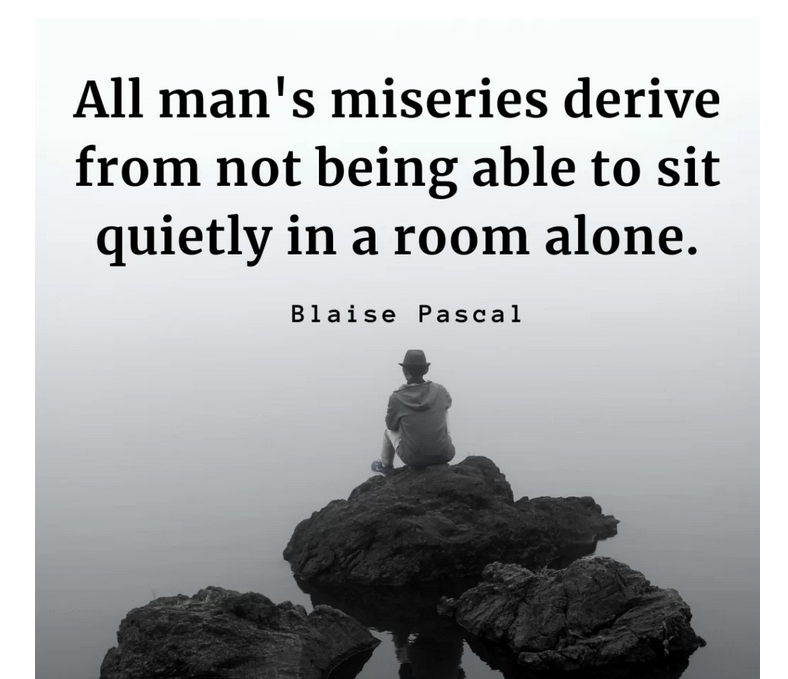If you feel busier today, you’re not alone. Since 2020 and the onset of Covid, the rate of change is moving 2-4x faster than the entire last century.
As a result, one huge challenge we face today in the workplace, in addition to how we work, is that it’s also put our overall health, including mental health, front and center.
In 2022, the Surgeon General Vivek Murthy developed guidelines to address an alarming decrease in employee well being.
In 2021, 76% of workers reported increased levels of anxiety and depression.
One in three Americans report that their mental health is negatively impacted by their jobs.
SHRM reported that 30% of 1000 workers report feeling overwhelmed at work while 29% report that they’re anxious at least one time per week.
Rigorous deadlines, long hours and heavy workloads, toxic cultures and a lack of overall psychological safety all contribute to struggles mental health and can lead to burnout.
While we all think we know a mental health concern when we see it, it can take more subtle forms that are easier to dismiss: difficulty sleeping, trouble setting boundaries for work, decision fatigue, not to mention the typical increase in irritability and emotional dysregulation.
Organizations are instituting Energy Check-Ins to assess where folks are at and offering greater access to mental health services via an Employee Assistance Program or training to identify unusual behaviors, absences, and difficult conduct at work.
While it’s great that an upside of Covid is the normalization of mental health challenges, going from stigma to standard business best practice, it’s important to be one’s own best advocate.
In working with clients, I’ve identified three things we can each do individually as an advocate for ourselves amidst the fast pace of change:
1) Assess where you are now. Not where you should be or need to be or planned to be, but where you actually are – now.
2) Ask – what do I want, now?
Act to move in the direction of strengthening your own mental health.
3) Act to move in the direction of strengthening your own mental health.
A CEO I work with lives some states away from his primary office, traveling back and forth each month for days at a time.
Hearing him tell it, ‘I’m off kilter due to my travel,’ thrown off his regular schedule of daily practices; he struggles each month to get back on his routine. “It makes me anxious and confused, takes a while to get back on track, only to have it happen again next month.”
When we explored the questions above, he acknowledged that his schedule, while not ideal, is what it is for now.
Assess your current state: “I’m off kilter.”
Ask yourself what you want: “I want to bounce back more quickly and avert the anxiety and energy expenditure.”
We spent time exploring what one shift or tweak he could make to ‘reset more quickly.
Action:He came up with committing to a workout class that marries his intention to stay on track with a transition back home.
Closer to home, a coaching client of mine, a C-suite healthcare executive, said it this way, “My colleagues and peers feel that life isn’t stable. I’m at the end of my rope, I’m at capacity, I can’t think straight.”
We ran through the questions too.
Assess where you are: “In the middle of a healthcare system that’s broken.”
Ask – what do I want now? “Time to recoup and think straight.”
Action: “I’m going to take two 20-minute breaks during the workday to get outside for a walk.”
Lastly, a CFO at a manufacturing company found she was staying late at night to catch up with all the work created after her company acquired another.
Assess: “I’m up too late, not getting enough sleep and tired the next day.”
Ask – what do I want? “What I want is to leave the office at a normal time, have dinner with my family, and get a good night’s sleep.”
Action: “I will learn to say no and to set boundaries with my team and my peers.”
It’s clear that mental health is often dismissed or hidden from us in our day-to-day grind at work, often not seen as Big Enough to be a real concern.
Yet, in taking time to ask the three questions and listen deeply, each of these clients found immediate solutions that supported and strengthened their mental health.
How’s your mental health? Are you caught up in stress and demands? I’d love to hear from you. Reach me here: DrChris@Q4-Consulting.com
~~~~~~~~~~~~~~~~~~~~~~~~~~~~~~~~~~~~~~~~~~~~~~~~~~~~
ABOUT THE CREATOR OF The Leadership Pause
I’m Dr. Chris Johnson, I coach changemakers and leaders with practical tools to pause, feel, and zero in on their old strategies to renew their energy, extend compassion, make clear decisions, and create real change by using their power skills. Learn more at: Q4-Consulting.com
I publish The Leadership Pause newsletter bi-weekly on LinkedIn. If you’re not already subscribed, click the Subscribe button to follow me too!

